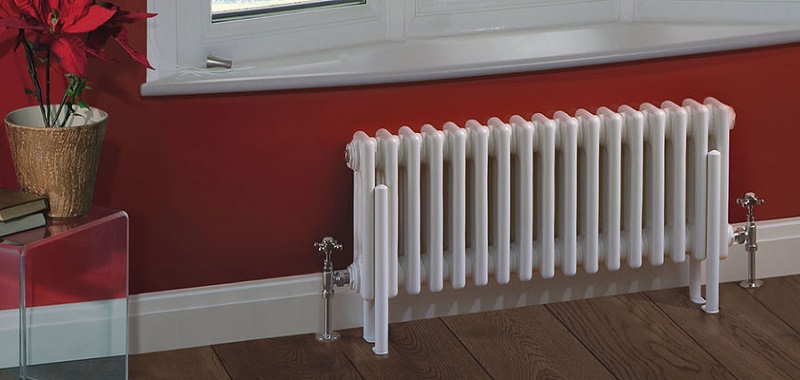A heater provides soothing warmth and comfort in winter season. People may have either a centralized heating system or space heaters, depending on certain variables like how much space they want to heat, the temperature outside, and the type of heating they want to use.
The most important factor that is considered when deciding between a space heater or a centralized heating system is related to efficiency. You would have a genuine concern regarding the cost and energy efficiency of the heating system since you need to stay in your budget. This issue is also very significant due to the increasing energy bills.
This article explores the efficiency of space heaters and a centralized heating system. We will also discuss the factors and variables which impact the efficiency of each heating system.
Heater Size Does Matter
If you need to warm a small area (such a one or two small rooms rather than the entire house), you should definitely use a space heater, which turns out to be less expensive for heating small areas or providing supplemental heat.
In case you need to heat more rooms in your house, using a standalone space heater for each room will result in huge energy bills. For the purpose of heating your entire home or many rooms, a centralized heating system will be relatively more cost-efficient.

The Type of Heater Also Plays a Role
Both centralized heating systems and space heaters have different efficiency levels. We will explore this further for each category:
Central Heating
According to the US Department of Energy, a centralized heating system has different efficiency levels, which are as follows:
- Gas-fired system: 85-97%
- Oil-fired system: 80-89%
- Coal-fired system: 45-60%
A central heating system based on electricity is even less energy efficient because of the distribution losses and wastage of energy at the power generation level.
If you are not sure about the efficiency of the type of central heating system you are using, you can check its annual fuel utilization efficiency (AFUE). AFUE describes the efficiency of a furnace in percentage, showing how much fuel is converted into heat by the furnace. The higher the AFUE a furnace possesses, the more fuel-efficient it is. An AFUE value of 80% and above indicates that the furnace is very efficient and can keep a small house adequately heated in the most cost-effective manner without any aid from a space heater.
Space Heaters
Space heaters do not cost too much to purchase, but their energy efficiency can depend on the type. Convection heaters warm the air in a top-down fashion, while radiant heaters warm objects through radiation. As warm air can escape the room easily if the room is not properly insulated, convection heaters are comparatively less efficient.
Additionally, it takes relatively more time to warm the air, making convection heaters less efficient. On the other hand, since radiant heaters focus heating an object or person, heat loss through air does not occur, making them more energy efficient.
There is a third type of space heater as well, which combines the features of convection and radiation heaters. This type is called a micathermic heater and uses a layer of mica sheets to enclose elements. These heaters are the most energy-efficient as they can provide the benefits of both convection and radiation heaters in one place.
Factors Affecting the Heater’s Efficiency
All heating systems require certain features in order to enhance their efficiency. Vigilant handling increases not only the efficiency but also the comfort level of users as heat loss is minimized. We will discuss about both heating systems here:
Central Heating System
This system may consist of many heating sources such as a gas boiler, a wood-capsuled boiler, a diesel boiler and water/air heating pumps. Consider the following factors before deciding to install a particular system so that you can maximize the heater’s energy efficiency:
- Check and asses the heating requirement of your house.
- Always asses the heat loss factor due to the insulation status of the house.
- Choose the system with the most suitable radiator for your house on the basis of your heating requirement and assessed heat loss through windows, ceilings, floors and drafts in doors.
- Adjust the temperature through a thermostat depending on your tolerance level for cold. In this way, you can minimize energy utilization.
Space Heaters
Moving on to space heaters now. Their efficiency level may also be optimized by checking certain factors:
- Use units that have features like a programmable thermostat, timer and overheat protection mechanism that ensure the heater is not used when not required and does not overheat.
- Insulation is critical as with a central heating system. Remember that the proper insulation of doors/windows and a sealed house will always enhance the efficiency of your heaters.
- In order to optimize your heater’s efficiency, have it checked periodically for maintenance and servicing.
Conclusion
The debate on whether space heaters are more efficient than a central heating system has been going on for quite some time. The Department of Energy’s revelation that heating accounts for almost half of the energy cost in American homes clearly explains why it is important to analyze the energy efficiency of both systems and choose the most efficient one. While central heating is more efficient for large spaces, space heaters are great for small spaces. Plus, there are various precautionary measures you can take to enhance the efficiency of both systems.

asses?????? instead of access your speliing???